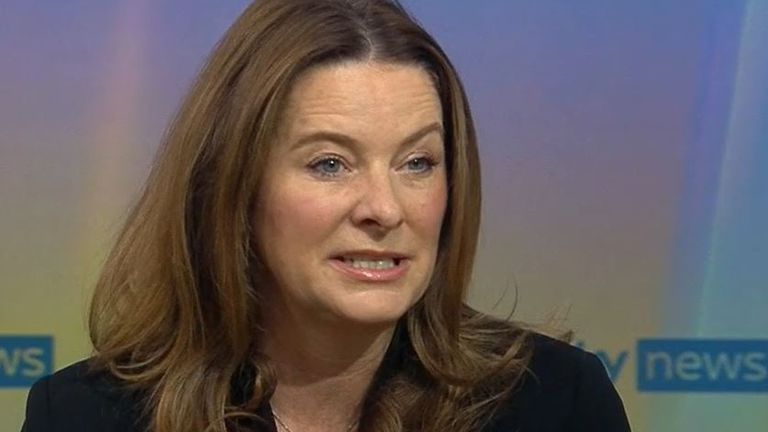COVID-19: Holidaymakers could be asked to have third jab to travel as ‘vaccine passport concept will evolve’, care minister says
British holidaymakers may in the future be asked to have a third COVID-19 vaccine dose before they are able to easily travel and return from abroad, a minister told Sky News.
People in England currently have to be fully vaccinated, meaning they have had both doses of a COVID-19 vaccine, in order to travel and return from abroad easily without the burden of extra testing.
But as part of the booster jab rollout, people over 50 are being asked to have a third dose.
Those aged 16 and over with a health condition – that puts them at high risk from coronavirus – are also being invited to have a third dose.
Asked by Sky’s Kay Burley if those invited to have a third dose will need to have done so in order to travel, Gillian Keegan, care minister, said: “I don’t think so, the advice at the moment is the doubled jabbed vaccination, but of course that will evolve over time as the third dose comes in.
“But it would be unreasonable to say right now when we’ve only just started the booster jab programme. It’s two doses for now, but I’m sure the vaccine passport concept will evolve.”
Live updates on COVID from the UK and around the world
People under 50 or those who do not have a health condition that puts them at high risk from COVID may be offered a third dose in future.
The programme began in September, and those currently being offered the third dose are being invited to have one six months after their second jab.
Ms Keegan told Kay Burley that the government will not reduce this six-month gap unless the Joint Committee on Vaccination and Immunisation (JCVI) recommends it.
Her comments come amid concerns that the pace of the booster vaccine rollout is too slow, with former health secretary and Conservative MP Jeremy Hunt suggesting the gap should be cut to five months to improve immunity in the lead up to Christmas.
In the latest data released on Thursday, the UK recorded another 52,009 new COVID cases and 115 virus-related deaths.
The number of new infections marked the first time that figure had been above 50,000 since 17 July.
Source: Read Full Article



